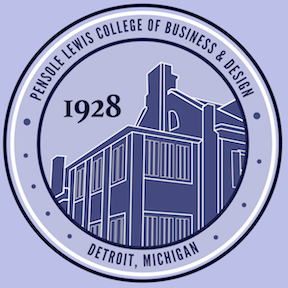 The Lewis College of Business, which was founded in 1928, began operation in Detroit in 1939, lost accreditation in 2007, and closed in 2013, was the only historically Black educational institution in the state of Michigan.
The Lewis College of Business, which was founded in 1928, began operation in Detroit in 1939, lost accreditation in 2007, and closed in 2013, was the only historically Black educational institution in the state of Michigan.
Now Michigan Governor Gretchen Whitmer has signed legislation authorizing the college to reopen as the Pensole Lewis College of Business and Design as an accredited educational corporation authorized by the State of Michigan. The college will be the nation’s first-ever reinstated HBCU. Opening March 2022, Pensole Lewis College will offer programs across design, sustainability, business, STEM, and more, serving young Black creatives across industries.
D’Wayne Edwards, the founder of the Pensole Design Academy in Portland, Oregon, is leading the effort and will serve as president. “I am proud to play a part in helping reopen the Pensole Lewis College of Business and Design in Detroit,” Edwards stated. “I am committed to expanding educational opportunities for Michiganders across our state to put Michigan first.”
The college will be housed on the campus of the College for Creative Studies in Detroit. Financial support is being provided by Target stores and the Gilbert Family Foundation.
“Detroit now has the first HBCU anywhere to reopen,” said Mike Duggan, mayor of Detroit. “As a predominantly Black city, this helps send a clear message that we are building one city, for everyone with opportunity for everyone.”













Before people start jumping for joy about this so-called “New HBCU” need to clearly understand the federal definition of what it means to be an HBCU. Under Title III of the the Higher Education Act of 1965, defines an HBCU as: “…any historically black college or university that was established prior to 1964, whose principal mission was, and is, the education of black Americans”. Based upon what D’Wayne have previously stated about this school that it will not be like other HBCUs. In other words, this institution will not be a “stand alone HBCU” because it will be housed on the campus of an Historically White College and University (HWCU) named the College for Creative Studies with a tuition of $23,000 per year.
One of the main driving factors behind Michigan governor Whitmer’s political support with this so-called HBCU is because she needs the Black vote in Detroit for her reelection. Similar claims can be made with the duplicitous White Detroit Mayor Mike Duggan. In fact, Governor Whitmer has consistently neglected the Black voters in Detroit since holding the governor’s seat.
Back to D’Wayne whose totally oblivious to what an HBCU is and what it’s supposed to be on numerous levels. In my view, D’Wayne is nothing more than an opportunist who ensure this so-called HBCU will be racially ambiguous akin to many other HBCUs. “Who’s zoomin who” (Franklin, 1985).